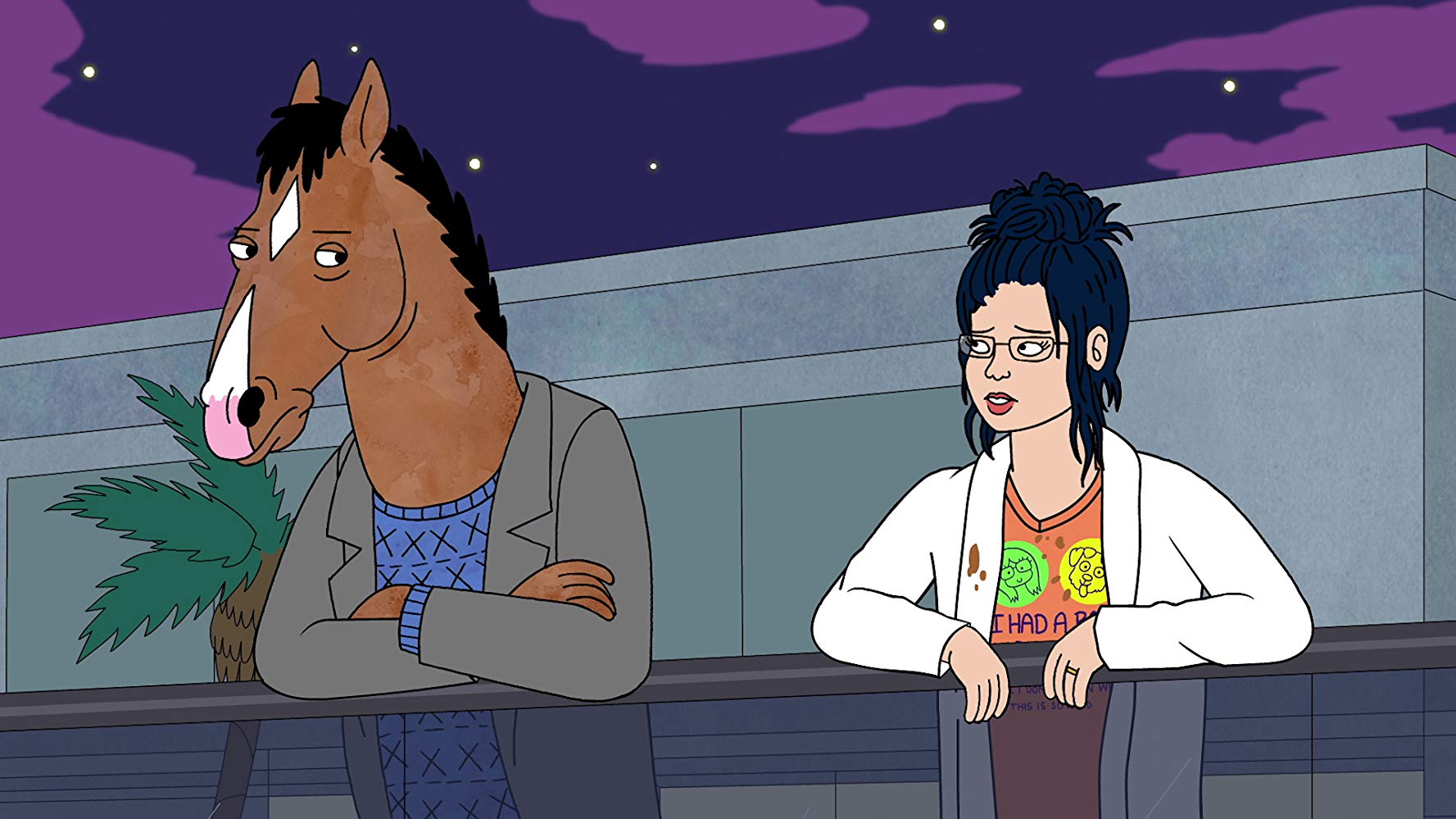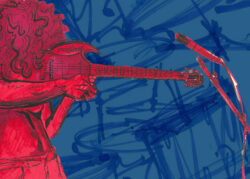What happens to celebrities after they win the award? What happens to them after the lights go off and the press turn off their cameras? What happens after they remove their Chanel dress, their Valentino tux, their Dior makeup? Do they dream? Do they sleep at all? Do they wake up feeling lost?
BoJack Horseman has always been known as a show that asks these questions. It has received praise for being experimental, ground-breaking and really quite strange. It is, most importantly, a show that makes you go, “Oh my god. This is me. In some weird, messed up way—this is me.” The show’s latest season taps into the very recesses of what makes us feel scared, joyful and terrifyingly human. Call it selfish but, a part of me can’t help but feel that the season was for us.
The show centres around BoJack Horseman (Will Arnett)—a humanoid horse who was once the star of a 90’s sitcom called Horsin’ Around. BoJack is self-destructive and depressed. He is an alcoholic, a drug addict. He is a celebrity, a friend, a boyfriend, an enemy. The things he does are often unflinchingly ugly. Yet, in past seasons, we often couldn’t help but root for him. His vulnerability repeatedly touches us and attracts us, rather than disgusts us. However, what makes season five so spectacular is the audience will often find themselves starting to hate him.
Season five revolves around BoJack’s new starring role in Philbert—a TV show where the eponymous character—a detective with a shady past — has disturbing parallels to BoJack’s own life. It’s the kind of ambitious show where the director, Flip McVicker, asks if the “darkness is a metaphor for darkness.” A strip scene in the show raises concerns about #MeToo and Diana Nguyen (Alison Brie), who was also BoJack’s ghost writer for his autobiography in season one, steps in to help make the script more accessible for a contemporary audience. BoJack’s personal and work life thus become intertwined and Philbert becomes a centralising force of the season. It becomes a way for BoJack to wrestle with himself, as Philbert encounters scenarios and characters that reflect situations in his own life. This meta element is one of the season’s strongest points. The penultimate episode captures this confusion between what is real and what is staged, continuing the series’ tradition of heart-breaking penultimate episodes where BoJack finds himself in an earth-shattering, tragic situation. There is a particularly excellent scene where BoJack is trying to solve a relevant mystery, which he explains to his production assistant. He then loudly announces, “Back to set!” to which she says, confusingly, “We are on set.”
BoJack’s new season is also distinctly modern. The second episode, “The Dog Days Are Over”, is styled like the Buzzfeed articles we’ve all been guilty of reading at two in the morning. Diane travels to Vietnam under the guise that she’s there to write an article titled “10 Reasons to Go to Vietnam” for Girl Croosh—the boujee clickbait machine she works for. As the episode unfolds and she makes her way down the list, the audience slowly learns that she is actually running away from sadness and, most importantly, from herself.
BoJack Horseman takes conventional rules of television and breaks them. “Free Churro” is a sprawling 26-minute Will Arnett monologue that is bitingly bitter and absolutely devastating in equal measure. “INT. SUB” takes its title from script formatting, and is told through the perspective of a therapist and a mediator, who are both caught up in the lives and conflicts of the characters. Season five is brave in ways nobody expected, and god—do they pull it off.
BoJack Horseman has often been criticised for its weak subplots. Yet, Todd (Aaron Paul), BoJack’s scatterbrained, lovable companion, and Princess Carolyn (Amy Sedaris), BoJack’s feline agent, quickly show themselves to be some of the strongest, most well-rounded characters in the series. Having recently come forth as an asexual, Todd’s relationship with Yolanda (Natalie Morales) is depicted as both hilarious and poignant, especially in the face of her sex-obsessed family. However, it is Princess Carolyn’s character arc that proves especially noteworthy. Episode five revolves around Princess Carolyn’s search for adoption—including a visit to her hometown that is mingled with painful memories. Again, BoJack Horseman weaves the past and the present together to create a complex narrative that allows these beautifully constructed characters to fully shine.
Throughout the season, BoJack repeatedly says that he wants to get better, but he doesn’t know how. The characters are pushed to be better, and as a result so is the audience. We are asked to reflect on our mistakes, our needs, and our desires. We are encouraged to look back on all the times we’ve hurt the people we love, as well as all the times we’ve cared about them. This season raises a mirror to our nature and asks us, “Is this who you want to be?” The answer isn’t always yes. BoJack Horseman shows us that not only is that okay, but that it is possible for us to change.






